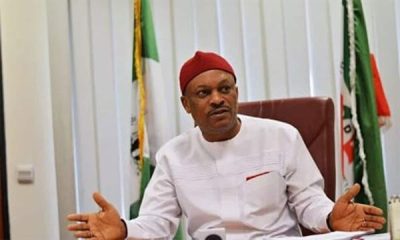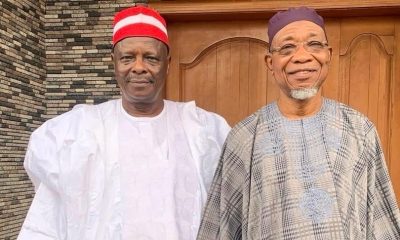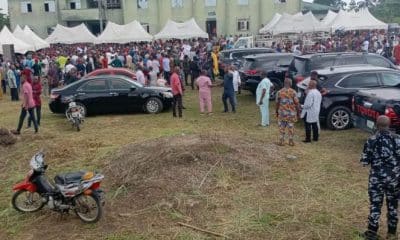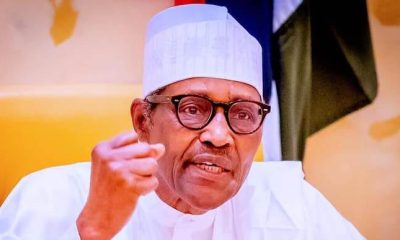Editorial
Mr President, Nigerian Media Know When To Use ‘Declining Insecurity’
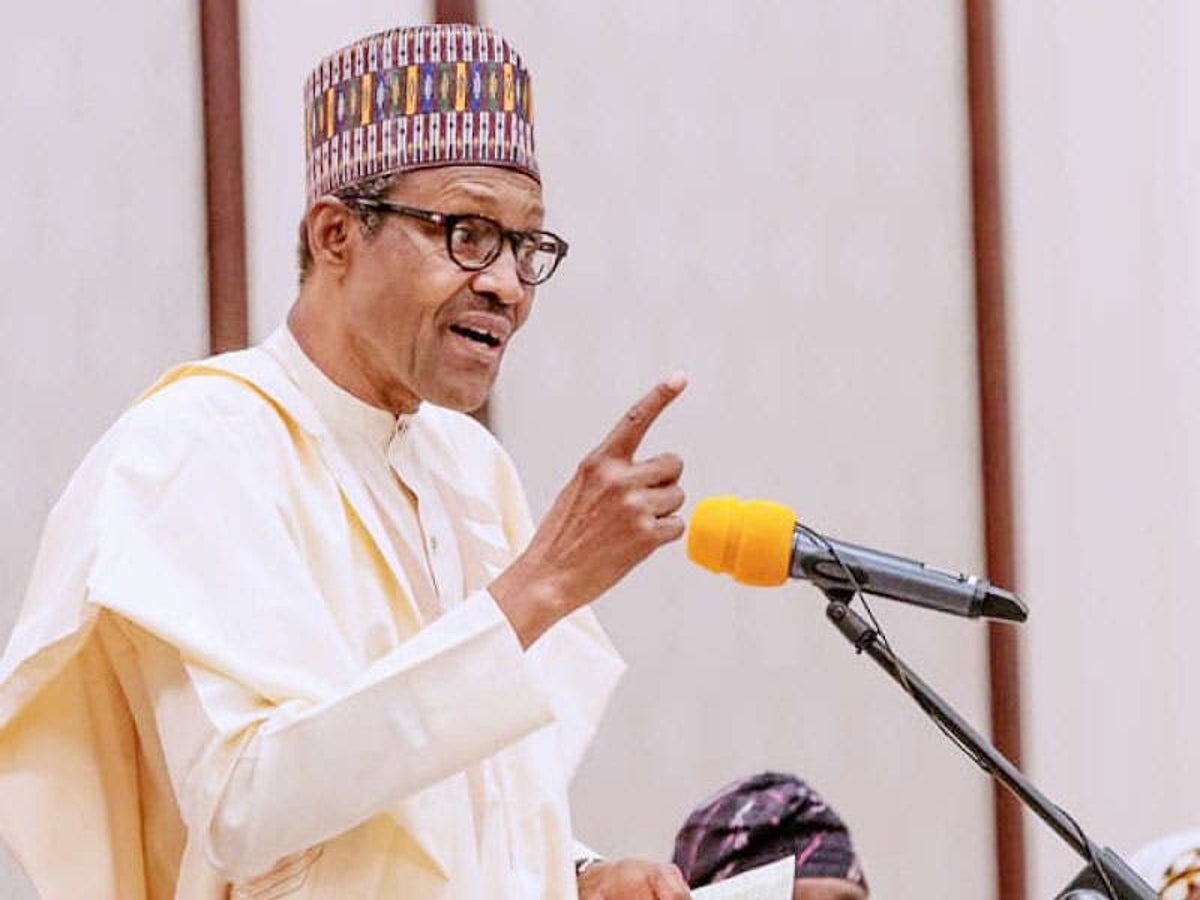
President Muhammadu Buhari stirred the hornet’s nest on Monday when he used his Eid-el-Maulud message to enjoin “the media to address the tone, content, and standards of reporting into security and safety measures. Time has come to revise the prefixes ‘rising insecurity’ with ‘declining insecurity’.” This came on the heels of a report by the Wall Street Journal that the Nigerian government paid the sum of N20 million to a bandit leader to secure a 12.7 calibre anti-aircraft gun in exchange for the payment.
WSJ alleged that the Air Force struck the deal amid plans by the President to visit his home state of Katsina, which has been ravaged by the activities of bandits in the Northwest. In line with their propensity for self-censorship, respectable Nigerian media platforms watered down the story, avoided it, or even anchored on the Nigerian Air Force denial of the foreign newspaper’s weighty allegation.
A few days before the presidential call for the revision of prefixes used in reporting security, gunmen stormed a meeting of some traditional rulers and stakeholders at Nnenasa in Njaba Local Government Area of Imo, and shot dead two traditional rulers whose identities were given as E. Duruebere of Okwudor autonomous community and Sampson Osunwa of Ihebinowerre autonomous community, both in Njaba.
Yet, while stressing that “the reality of declining insecurity should replace the inaccurate narrative of rising insecurity in the country”, Buhari insisted that “the whole country and its mass communications systems have a duty in this regard”. This pontification came almost the same time that the President reacted to the killings of no fewer than 30 people in Goronyo market in Goronyo LGA of Sokoto State.
Buhari declared in the statement issued by his spokesman, Garba Shehu that the bandits “are living in the fool’s paradise of invincibility, but reality will soon dawn on them harder than ever before” as he told the killer-bandits that “the clock of your ultimate destruction is ticking as you will no longer have a place to hide”. While this statement hints at a strong resolve by the government to deal with terrorism it does not suggest the “declining insecurity” which the President wants the Nigerian media to adopt in their reportage of the state of security in the country.
Assuming without conceding that the President can actually teach journalists and editors how to report the news, shouldn’t he have waited until the burst of the bandits’ invincibility bubble and their ultimate destruction sets in before doing so. Even then, Buhari’s journalism lecture will still be unnecessary because the media as the mirror of society would have ordinarily reflected that reality.
This week’s reported attack on the Abuja-Kaduna train service further rubbishes the President’s call on the media to adopt “declining insecurity” as a kicker and perhaps paints a vivid picture of how Nigeria’s officialdom wants instances of insecurity communicated to Nigerians.
According to an eyewitness none other than Shehu Sani, “Yesternight, bandits attacked the Kaduna-Abuja train. They planted an explosive that damaged the rail track and shattered the windshield of the train engine. They also opened fire, targeting the driver and the tank… This early morning, I was on board when our train ran over another explosive-damaged railing. The train nearly skidded off its track, then we miraculously escaped.”
The Nigerian Railway Corporation attempted to make mild the attack when the Managing Director, Fidet Okhiria, who is not a security expert nor was speaking on the strength of preliminary investigations, refuted claims that terrorists or bandits attacked NRC train within the Abuja-Kaduna rail corridor. He stated that it was only the rail track that was destroyed by suspected vandals, adding that, “we operated a train from Kaduna to Abuja this morning (Thursday) but we had to suspend operations due to the damaged track until we fix it”.
This comment is despite pictures of the attacked locomotive and track shared freely online. Refusing to buy the tale that it was vandals’ handiwork, a national daily led with the headline: “ISWAP, Ansaru Bomb Rail Track, Ground Abuja-Kaduna Services” and quoted a senior security source as saying, “These (attacks) have the signature of ISWAP and Ansaru written all over it, bandits want to kidnap and trade human beings for ransom but this is clear terrorism. The aim was to kill the people on the train”.
With the benefit of hindsight, the presidency should have realized that the President spoke too soon in asking the press to replace “rising insecurity” with “declining insecurity”. With the daily security briefings available to him, Naija News wonders how the President would at this time push for rising insecurity to be merely replaced with declining insecurity. If this is the thinking in the commanding heights of power, what then is the hope that there will be an improvement in the security crises facing the country?
Granted that the military and security agencies have in recent times recorded huge gains in the fight against insurgency and banditry, this does not mean that the people should be given a false sense of security. We recall that following the repeated official claim that Boko Haram terrorists have been decimated in the North-east, at least 44 rice farmers who returned to their farms in Zabarmari, Borno state were massacred by Boko Haram terrorists last November. There was national outrage when the presidency blamed the farmers for not getting security clearance from the military before returning to their farms.
It is in order to forestall a similar scenario that Naija News rejects the President’s message to journalists on how to report the insecurity ravaging the country. Such presidential intervention can erode the thin line between mere recommendation and the censorship of the press. Media workers love their country too and are mindful of national interest while plying their craft.
The fact that the Nigerian press doesn’t need any lecture on reporting the insecurity in the country emerged when the Nigerian Guild of Editors (NGE), at the opening of their 17th Conference, expressed readiness to decide on whether to “play up the occasional successes of insurgents and bandits against our military” or “deliberately give adequate publicity to the gains of our dedicated military personnel against the bad guys disturbing the peace of this nation?” There is no doubt that they will opt for the latter given journalists’ cooperation with the military which sees them report without investigating regular press releases about troops neutralizing hundreds of bandits and terrorists as well as the air force’s bombardment of terrorist hideouts.
Naija News, therefore, calls on the Commander-in-Chief of the Federal Republic to focus more on actuating concrete decline in insecurity. When the President visibly achieves this critical leg of his three-point agenda, any media platform or journalist that retains “rising insecurity” as a prefix to security stories will be doing themselves a great disservice. This is because the media audience and advertisers do not suffer fake news peddlers or fear mongers gladly.





